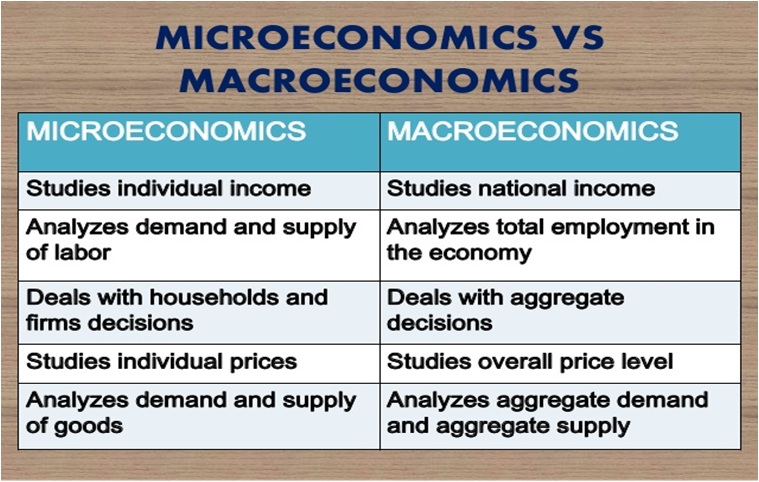Module 1 – Introduction to Economics and International Economics
Choose a professional writer from AssignmentHelpAUS and get 100% satisfying assignment help on Introduction to International Economics Assessment. Our experts are well trained and are highly knowledgeable, and we guarantee 100% plagiarism-free work from our PhD qualified writers. We provide Instant Assignment Help, Dissertation Writing Help, Case Study Assignment Help and more.
Introduction
- How has the decision of UK to exit the EU (BREXIT) impacted its’ trade ?
- What are the implications of US –China trade war ?
- Why US products are being manufactured in China ?
- How is the rapid growth of trade with China and India likely to affect the structure of production and wages in Europe?
- Why have trade negotiations in the Doha round of the WTO come to a standstill?
- Does this matter in the face of the rise of ‘regionalism’?
- What are the effects of European Monetary integration?
- How is the UK affected by its decision not to join the Euro?
- How does financial crisis spread across countries?
Economics, Scarcity, and Choice
- A good definition of economics
- Study of choice under conditions of scarcity
- Scarcity
- Situation in which the amount of something available is insufficient to satisfy the desire for it
Scarcity and Individual Choice
- There are an unlimited variety of scarcities, however they are all based on two basic limitations
Scarce time
Scarce spending power - Limitations force each of us to make choices
- Economists study choices we make as individuals, and consequences of those choices
- Economists also study more subtle and indirect effects of individual choice on our society
Scarcity and Social Choice
The problem for society is a scarcity of resources
Scarcity of Labor
- Time human beings spend producing goods and services
Scarcity of Capital
- Human capital
- Capital stock
Scarcity of land
- Physical space on which production occurs, and the natural resources that come with it
Scarcity of entrepreneurship
- Ability and willingness to combine the other resources into a productive enterprise
As a society our resources—land, labor, and capital—are insufficient to produce all the goods and services we might desire
- In other words, society faces a scarcity of resources
Scarcity and Economics
- The scarcity of resources—and the choices it forces us to make—is the source of all of the problems studied in economics
- Households allocate limited income among goods and services
- Business firms’ choices of what to produce and how much are limited by costs of production
- Government agencies work with limited budgets and must carefully choose which goals to pursue
International Economics
International Economics is the study of economic interactions between countries.
It addresses many topical issues, such as:
- How is the rapid growth of trade with China and India likely to affect the structure of production and wages in Europe?
- What are the effects of European Monetary integration?
- How is the UK affected by its decision not to join the Euro?
- How does financial crisis spread across countries?
Broadly speaking, the field is split between the study of;
- International Trade, which extends microeconomics to open economies, and
- International Finance, which employs macroeconomic analysis.
Micro : Micro comes from Greek word mikros, meaning “small”
Macro : Macro comes from Greek word, makros, meaning “large”
International Economics
International Trade describes and predicts patterns of production, trade and investment across countries.
- It also looks at the effect that trade has on both the level and distribution of incomes within and across countries.
- It analyses different trade policies, the effects of ‘regionalism’ (regional trading blocs) and the potential effect of multilateral trade negotiations conducted by World Trade Organization (WTO).
International Finance examines the effects of financial flows between countries.
- It looks at the effect of such flows on the balance of payments and the exchange rate.
- It also evaluates the implications of different exchange rate regimes and considers the appropriate role of international institutions such as the International Monetary Fund (IMF).
International economics is about
- how nations interact through trade of goods and services,
- through flows of money and
- through investment.
Nations are more closely linked through trade in goods and services, through flows of money, and through investment than ever before.
What Is International Economics About?
- International economics is about how nations interact through trade of goods and services, through flows of money and through investment.
- International economics is an old subject, but it continues to grow in importance as countries become tied to the international economy.
- Nations are more closely linked through trade in goods and services, through flows of money, and through investment than ever before.
Gains from Trade
Several ideas underlie the gains from trade
1.When a buyer and a seller engage in a voluntary transaction, both receive something that they want and both can be made better off.
- Norwegian consumers could buy oranges through international trade that they otherwise would have a difficult time producing.
- The producer of the oranges receives income that it can use to buy the things that it desires.
2.How could a country that is the most (least) efficient producer of everything gain from trade?
- With a finite amount of resources, countries can use those resources to produce what they are most productive at (compared to their other production choices), then trade those products for goods and services that they want to consume.
- Countries can specialize in production, while consuming many goods and services through trade.
3.Trade is predicted to benefit a country by making it more efficient when it exports goods which use abundant resources and imports goods which use scarce resources.
4.When countries specialize, they may also be more efficient due to large scale production.
5.Countries may also gain by trading current resources for future resources (lending and borrowing).
- Trade is predicted to benefit countries as a whole in several ways, but trade may harm particular groups within a country.
- International trade can adversely affect the owners of resources that are used intensively in industries that compete with imports.
- Trade may therefore have effects on the distribution of income within a country.
- Conflicts about trade should occur between groups within countries rather than between countries.
Patterns of Trade
- Differences in climate and resources can explain why Brazil exports coffee and Australia exports iron ore.
- But why does Japan export automobiles, while the US exports aircraft?
- Differences in labor productivity may explain why some countries export certain products.
- How relative supplies of capital, labor and land are used in the production of different goods may also explain why some countries export certain products.
The Effects of Government Policies on Trade
Policy makers affect the amount of trade through
- tariffs: a tax on imports or exports,
- quotas: a quantity restriction on imports or exports,
- export subsidies: a payment to producers that export,
- or through other regulations (e.g., product specifications)
that exclude foreign products from the market, but still allow domestic products. - What are the costs and benefits of these policies?
- Economists design models that try to measure the effects of different trade policies.
- If a government must restrict trade, which policy should it use?
- If a government must restrict trade, how much should it restrict trade?
- If a government restricts trade, what are the costs if foreign governments respond likewise?
International Finance Topics
- Governments measure the value of exports and imports, as well as the value of international financial capital that flows into and out of their countries.
- Related to these two measures is the measure of official settlements balance, or the balance of payments: the balance of funds that central banks use for official international payments.
- All three values are measured in the government’s national income accounts.
- Besides international financial capital flows and the official settlements balance, exchange rates are also an important financial issue for most governments.
- Exchange rates measure how much domestic currency can be exchanged for foreign currency.
- They also affect how much goods that are denominated in foreign currency (imports) cost.
- And they affect how much goods denominated in domestic currency (exports) cost in foreign markets.
International Trade Versus International Finance
International trade focuses on transactions of real goods and services across nations.
- These transactions usually involve a physical movement
of goods or a commitment of tangible resources like
labor services.
International finance focuses on financial or monetary transactions across nations.
- For example, purchases of US dollars or financial assets by Europeans


